Studies show that creatine intake can significantly boost muscle growth and enhance energy levels, particularly when it's incorporated into a well-structured and effective resistance training program.
Having used high-quality creatine supplements for years, one of the most common questions I encounter is about the right amount of fluid intake with vitamins.
From personal health consultations to discussions with fellow medical professionals, I've heard concerns about creatine potentially causing dehydration and leading to muscle cramps. We've gone through hundreds of relevant pieces of information and in-depth research to put this claim to the test.
Let’s talk about how much water your body needs for proper hydration.
Quick Summary
- To ensure optimal benefits from creatine supplementation, drink an additional 300-500ml of water for every 3-5g of creatine consumed.
- Some individuals believe that creatine might cause dehydration due to water retention in muscle cells, but research suggests that creatine can actually aid in hydration.
- Drinking at least 4 to 5 liters of water daily while taking creatine is recommended to prevent dehydration.
- Although I believe creatine is beneficial for muscle growth and energy, it's essential to monitor hydration levels, especially when combined with other supplements like caffeine.
How Much Water Should You Take With Creatine?
In order to optimize the benefits of creatine, you should drink 300-500ml of water on top of your regular water intake if you drink with creatine (3-5g).
During the day your water intake should be at least 4 to 5 liters while taking creatine to avoid possible dehydration. If you feel some ingestion issues while consuming creatine, mix it with hot water or warm tea.
Do You Need To Drink More Water When Taking Creatine?

You don’t necessarily need to drink more water when taking creatine.
If you’re doing a lot of fitness, then you will be drinking more water to ensure proper hydration. You have to replace the water you lose from the sweating created by your fitness training.
If you exercise intensely, you need to drink enough water to account for the sweat loss you experienced. If you live in a hot climate, you may also need more due to sweating throughout the day.
- Andrea Cox, Nutritionist
You should be mindful of your body and drink more water daily when you notice dehydration side effects. Some of the side effects of dehydration are:
- Dry mouth
- Headache
- Increased thirsty
- Tiredness
- Dry Skin
Beyond the traditional glass of water, there are natural ways to boost your hydration levels when taking creatine.
Certain foods are naturally rich in water and can significantly contribute to your daily hydration needs. For instance, watermelon is composed of about 92% water, making it a refreshing and hydrating snack.
Similarly, cucumbers and strawberries contain about 95% and 91% water, respectively. Incorporating these foods into your diet not only aids in hydration but also provides essential vitamins and minerals that complement the benefits of creatine.
I've met individuals who believe that creatine supplements might cause dehydration due to water retention in muscle cells. However, my experience and research suggest otherwise.
I couldn’t find any research to support this theory—quite the opposite. I found research that suggests that it can help with hydration [1].
Balancing Electrolytes with Creatine Supplementation
While increasing your water intake due to creatine supplementation, it's crucial not to overlook the importance of electrolytes.
Electrolytes, such as sodium, potassium, and magnesium, play a pivotal role in muscle function, nerve function, and maintaining fluid balance in the body.
As creatine draws more water into your muscle cells, there's a potential risk of diluting essential electrolytes, leading to imbalances. To counteract this, ensure you're consuming a balanced diet rich in these minerals.
Foods like bananas, spinach, and avocados can be excellent sources. Additionally, if you're involved in intense physical activity, consider an electrolyte-replenishing drink to maintain optimal muscle function and prevent cramps.
How Do You Mix Creatine With Water?
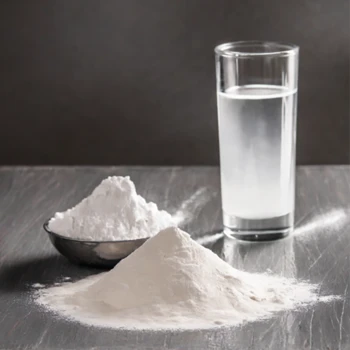
For optimal absorption and effectiveness, you mix 3-5 grams of creatine monohydrate or one teaspoon with 8 oz of water until the powder is dissolved.
Here are some other things you should consider:
- Use creatine monohydrate in micronized form as it’s smaller than normal creatine. It will mix better so you won’t have clumps in your drink.
- Use warm water to improve the dissolving process. Creatine dissolves more slowly in cold water or liquids. However, it doesn’t make it any less effective.
- It’s best to take your creatine freshly mixed; it might be tempting to pre-mix it, but it’s a terrible idea. Creatine supplement starts to degrade the moment it’s in contact with water, lessening its body weight gain effects.
Which Creatine Is Best For Mixing?
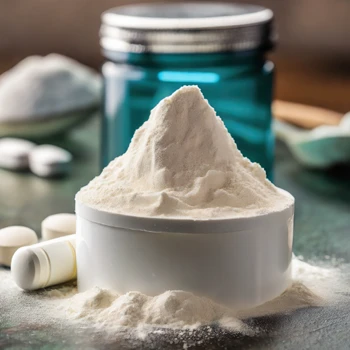
The micronized creatine monohydrate supplement is the best for mixing. Its particles are approximately 20 times smaller than the regular creatine powder particles, making it easier to dissolve in water without lessening its weight gain effects.
Creatine monohydrate is also the most researched version, so you will still get the full benefits of drinking the micronized form.
How Should I Take Creatine To See Results?
To see the results of taking creatine powder, you should do a loading phase. It entails ingesting 20 grams of creatine daily for 5–7 days to saturate your muscle cells rapidly, then 2–10 grams of creatine daily to sustain high levels.
This strategy can increase your muscle storage in one week or less.
Some people do a loading phase (which I’ll discuss in the next section more thoroughly). The theory is that you will see quicker results.
Know more about this in our article: When you should take creatine
What Is The Correct Creatine Dosage?
The correct creatine dosage depends on your weight and if you decide to go on a loading phase first.
Loading phase means taking a lot of creatine before going into a maintenance dosage.
The usual recommendation is to consume 20-25 grams of creatine per day for about a week.
Once you complete the loading phase, or if you decide to forgo it entirely, then you can switch to the maintenance dosage.
An average dosage is between 3-5 grams of creatine per day. You can calculate how much you should consume by taking your weight and multiplying it by 14mg per pound.
We discuss more about this in our article: Why you should cycle creatine
Also, watch the video for more information about the correct dosage:

Does Creatine Have To Be Taken With Sugar?
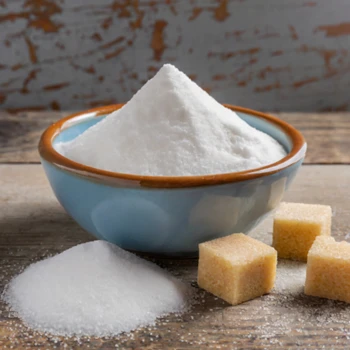
No, creatine supplementation doesn’t have to be taken with sugar to benefit your skeletal muscle cells.
I know people though who would refuse to take creatine without some sweetener. Creatine supplements can have a bitter taste.
A lot of companies add sugar to their formula to help with the taste. If that appeals to you, then go for it.
Try to avoid artificial sweeteners because they have some potential health issues linked to them.
What Other Liquids Can I Mix With Creatine?
Other liquids you can mix with creatine are juices, protein shakes, or pre-workouts.
Does Caffeine Affect Creatine Negatively?
Caffeine can affect creatine negatively. If you consume too much caffeine, you dehydrate yourself. This could affect creatine’s ability to give you a powerful exercise performance.
The research is inconclusive, but it’s worth noting.
On a related note, one study did suggest that creatine supplementation and caffeine only caused mild indigestion in a few people [2].
References:
- https://www.ncbi.nlm.nih.gov/pubmed/12701814
- https://www.ncbi.nlm.nih.gov/pmc/articles/PMC4808512/
About The Author
You May Also Like
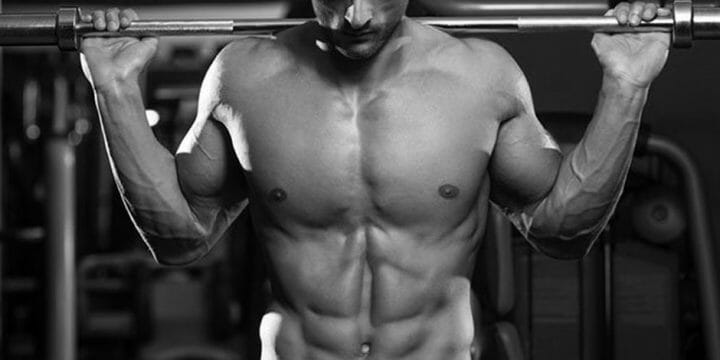


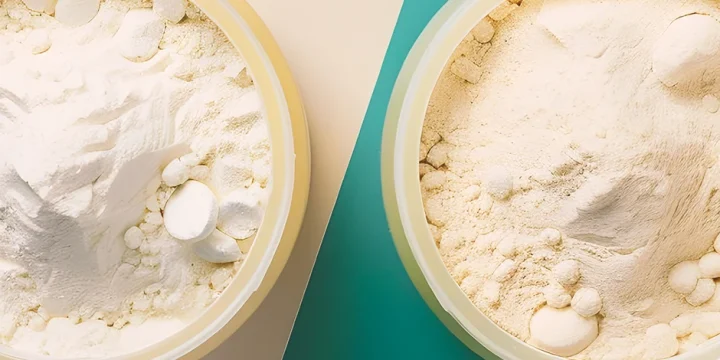
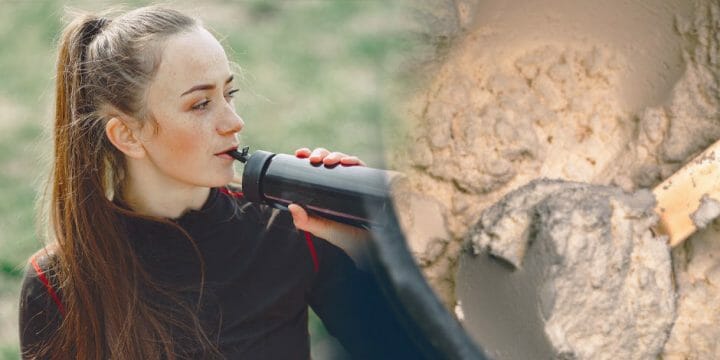


Excellent article!!
How much water weight does creatine add?
Can you put creatine in coffee?